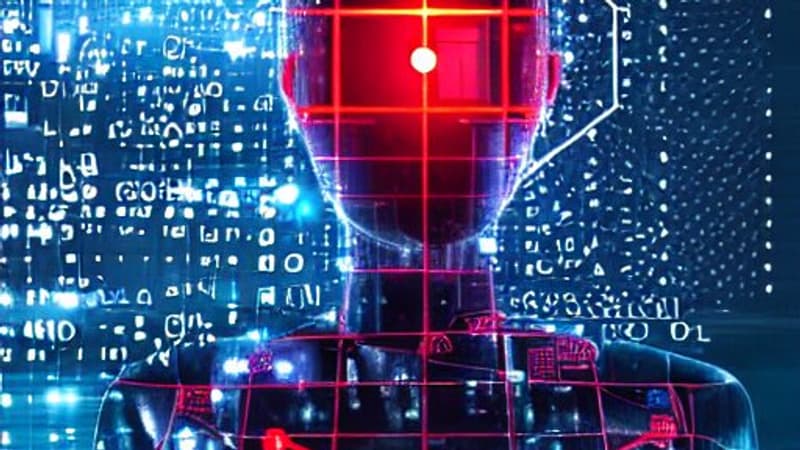It’s free, it’s fast, it’s multilingual and it’s an excellent pen: how can you dissuade students from all over the world from letting the revolutionary ChatGPT bot write their assignments? A Haute-Savoie company specializing in plagiarism detection has an idea.
The surprising success of this software launched in November by OpenAI, an American start-up, has caused a stir in universities, which fear that the temptation to make you write papers without supervision is too strong. Several establishments have already banned its use and little by little resistance is being organized.
The small company Compilatio, near Annecy, seized the opportunity. You’ve changed your priorities and are working to rapidly develop artificial intelligence (AI) detection software for universities.
More than 90% reliability
Launched in 2003, for years it has provided teachers with anti-plagiarism software that eliminates copy-pasted passages. Marketed in several languages in about forty countries, it equips, according to her, 98% of French universities.
When ChatGPT appeared, “teachers turned to us because it’s a new way of cheating, it’s a case of plagiarism,” says its president and founder, Frédéric Agnès. “Today any student, anywhere in the world, can produce a twenty page assignment in five minutes, it’s a super strong impact.”
Compilatio has a technology that allows “detecting the AI/human distinction in several languages and with more than 90% reliability,” he stresses. A demonstrator on their site lets you experience it: Tested with an AFP dispatch, the software detected “with 99% confidence (a human text).
A good part of the group’s thirty employees, including several computer science doctors, work on the software, currently still in “kitchen mode.”
“We feel that there is a fear of customers. Giving them a solution is to prevent them from looking for it elsewhere, ”she underlines.
Measuring text predictability
ChatGPT was designed to produce the most probable text possible in a given context, much like a search engine’s ‘sentence completion’ tool, only more powerful. “He does it so well that we find it magical,” underlines Frédéric Agnès.
OpenAI released its own free-to-use AI detection tool in February, but acknowledges that it’s not entirely reliable at this stage.
The detection system, also based on artificial intelligence, will therefore consist of “measuring the predictability of the text, its level of language, the breadth of the semantic field, indicators that humans will not be able to measure, but that produce a signal”. “explains the businessman.
But beyond the “technological cat and mouse game”, Compilatio is committed to supporting and promoting a culture of “integrity in institutions, rather than touching the fingers of students”, insists Frédéric Agnès.
Anti-plagiarism software has proven its effectiveness, says Alain Gay, professor at the ISARA engineering school, also coordinator of the technical group on plagiarism at the University of Lyon.
Good research, precise and concise.
Its mere existence has caused “in 2-3 years a phenomenal drop in the use of copy and paste” among students, he stresses.
Thomas Capron, a sophomore at ISARA, uses ChatGPT “on a daily basis.” “It allows good, precise and concise research on the concepts of the course (…). But using it to do an entire task isn’t very constructive,” he admits.
Teachers can always resort to supervised tasks, says Yann Demarigny, microbiologist, professor-researcher at ISARA. “We must not be afraid. It is a tool that will enrich our pedagogy ”, he believes.
Source: BFM TV


